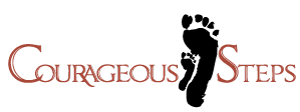ORGL-503: Organizational Ethics
Expected Competencies
Ethical Decision-Making
Ability to critically analyze ethical dilemmas within leadership contexts and recommend appropriate courses of action.Personal Reflection on Ethics
Competence in articulating and describing personal responses to ethical problems, grounded in a well-defined personal worldview.Balancing Virtues and Organizational Values
Skill in aligning personal virtues with organizational values, ensuring that leadership decisions reflect both personal integrity and the organization's ethical standards.Community Building
Capability to foster and sustain a cooperative community within an organization by promoting shared values and collective ethical practices.Strategic Ethical Leadership
Proficiency in developing and implementing strategies to address ethical challenges in leadership, integrating moral considerations with effective decision-making.
Achieved Competencies
Application of Ethical Decision-Making Models
Successfully applied Cooper’s Model to identify and navigate moral decision-making processes in organizational leadership contexts.Critical Reflection on Worldview
Demonstrated the ability to reflect on personal worldview and its influence on ethical decision-making within organizational settings.Topic Selection and Ethical Analysis
Developed the skill to choose relevant topics and apply ethical approaches to analyze and address complex moral challenges effectively.Integration of Personal Morality with Leadership
Showcased the ability to integrate personal moral beliefs with organizational leadership principles to guide ethical decision-making.Development of Actionable Ethical Solutions
Gained competency in creating actionable and ethically sound solutions based on structured ethical decision-making models.
Applied Competencies
Ethical Considerations of Extremely Low Birth Weight Babies
Applied Cooper’s Model and ethical frameworks—including egoism, utilitarianism, and Kantian ethics—to the complex decision-making process surrounding resuscitation of ELBW infants. Emphasized limitations of viability standards and the need for anticipatory ethical planning.Overcoming Group Think
Analyzed 12 Angry Men to understand how groupthink undermines ethical decision-making. Identified symptoms such as overconfidence and suppression of dissent, and applied leadership strategies to promote open dialogue and critical thinking.Ethical Considerations of the Measles, Mumps, and Rubella Vaccine
Used Cooper’s Model to evaluate vaccine ethics, balancing public health, autonomy, and religious perspectives. Advocated for vaccination while encouraging more transparent and ethically sound biomedical practices.Work Ethics
Reflected on personal and familial work ethic values through the lens of Wall’s Theory of Obligation. Explored tensions between cultural norms and moral duty, affirming commitment to resilience, meaningful work, and intergenerational responsibility.
Artifact Inclusions
Ethical Considerations of Extremely Low Birth Weight Babies
A research paper exploring neonatal viability, ethical frameworks in medicine, and systemic bias in resuscitation decisions.Overcoming Group Think
A leadership ethics essay analyzing 12 Angry Men and applying its lessons to promote ethical reasoning and group decision integrity.Ethical Considerations of the MMR Vaccine
A case-based ethical analysis using Cooper’s Model to explore vaccine ethics and the moral implications of public health mandates.Work Ethics
A reflective paper linking personal history and philosophical foundations to the ethical importance of work and perseverance.
References
Kouzes, J. M., & Posner, B. Z. (1993). Credibility: How leaders gain and lose it, why people demand it. San Francisco: Jossey-Bass.
Lumet, S. (Director), Fonda, H., & Rose, R. (Producers), & Rose, R., & Hopkins, K. (Writers). (1956). 12 Angry Men [Motion picture]. United States: United Artists Corp.
Nicholi, A. M. (2002). The Question of God: C.S. Lewis and Sigmund Freud Debate God, Love, Sex, and the Meaning of Life. New York: Free Press.
Key Words
Ethical Decision-Making; Personal Reflection on Ethics; Balancing Virtues and Organizational Values; Community Building; Strategic Ethical Leadership; Cooper’s Ethical Decision-Making Model; Worldview and Ethical Decision-Making; Ethical Dilemmas in Healthcare; Extremely Low Birth Weight (ELBW) Infants; Groupthink and Leadership; Measles, Mumps, and Rubella (MMR) Vaccine Ethics; Vaccine Controversies; Work Ethics and Resilience; Theories of Ethical Obligation; Family Influence on Work Ethics.

